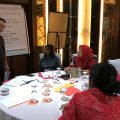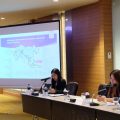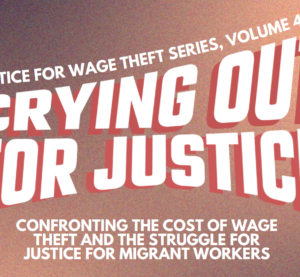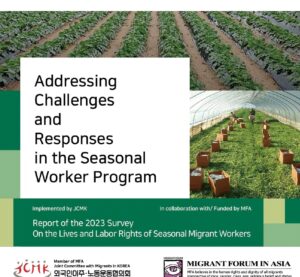Resources on Indian labor migration
— February 24, 2012MFA is taking on an initiative “Enhancing the protection of Indian migrant workers in the Gulf countries through evidence-based capacity building with Governments and Civil Society,” which facilitates networking with civil society organizations, migrant support groups and the government in India (with a focus on three states: Andhra Pradesh, Kerala and Tamil Nadu) and GCC countries (focus on Oman). The initiative is a collaborative work for the protection of the rights of migrant workers.
The initiative undertakes a number of research with the aim of contributing to the improvement of standards of labor and migration support of governments to migrant workers and members of their families.
- Mapping of government commitments and services for migrants. This research consists of a mapping of services provided to migrant workers, both by organizations within India (with particular focus on the study’s three focus states – Kerala, Andhra Pradesh, and Tamil Nadu, and at the national level), and by Indian missions operating in the GCC (with particular focus on Oman). The mapping was undertaken with a view to enhancing the knowledge base of civil society and governments on service gaps, providing inputs to assist in plans to bridge said gaps. It contributes to the efficacy of migrant rights advocacy by providing a compilation of necessary and compelling evidence.
- Pre-departure information manual for intending emigrants to Oman. MFA members and partners in India and Oman developed a manual which provides basic information essential to build foundation for rights awareness, protection and migrant worker empowerment. While the responsibility to protect and promote the rights of migrant workers and members of their families rest primarily on the State, it is also crucial not only for civil society organizations and labor unions working with migrant workers but also for migrant workers themselves and members of their families to be aware of their rights and options available for them. The pre-departure manual, in English, Malayalam, Tamil and Telugu, is intended as one tool to empower migrant workers and those who assist them in navigating the support systems in India and in the country of destination like Oman. The panchayat manual contains all relevant information to inform migrant workers, their families and support systems about migrant workers rights, existing policies and programs available in both India and the receiving countries. A pocket version of the predeparture information manuals, the panchayat manual contains all four language translations, and contact details of Indian embassies in West Asia.
- Study on NORKA ROOTS. The study focuses on three key aspects: a) critical assessment of the services provided by Norka Roots; b) feasibility of application of Norka Roots to other source states in India and c) recommendations for a national framework that compliments state-level initiatives.NORKA ROOTS is an innovative attempt by the Government of Kerala. It has been working over the last 10 years with several new policy initiatives for the welfare of prospective emigrants, emigrants, return emigrants, out-migrants and return out-migrants. NORKA ROOTS as an organization within the Department of Non-Resident Keralite Affairs is a model that can be adopted in every state in India experiencing large-scale migration.
- Something is Better than Nothing: Enhancing the protection of Indian migrant workers through Bilateral Agreements and Memoranda of Understanding. The study deals primarily with MOUs entered into by the Government of India. The analysis of the MOUs has shown that India’s recent record has been impressive in negotiating many MOUs, and social security agreements and one labor mobility partnership. Yet it is difficult to find much evidence that the MOUs and agreements on labor migration have contributed to improved protection of Indian workers in the major destinations – the Gulf countries and Malaysia. This should however, not imply that India is better off without MOUs. The existence of MOUs has a political value, and they have provided a firmer foundation for the country to build upon in this regard. In this sense, an agreement or MOU is better than a situation of no agreement or MOU. The MOUs provide a broad framework but they need to be backed up by concrete initiatives in the areas of model contracts, workplace monitoring, dispute resolution mechanisms, mechanisms for access to justice, monitoring practices of recruitment agencies, and adequate labor inspection systems. While these may be harder to negotiate, they should nevertheless receive high priority if MOUs are to have operational value in protecting Indian migrant workers abroad.
- Emigration from Kerala, Andhra Pradesh and Tamil Nadu: A mapping of surveys on international labour migration from India. This paper examines the most recent statistics and findings on the Indian trends of migration by analysing mutable sources in terms of emigration stock and remittances and also includes a special focus on Kerala, the historic migrants’ hub of India which can clearly explain the patterns and trends of migration owing to the global circumstances.
Tagged with:
Labour Migration and Recruitment





